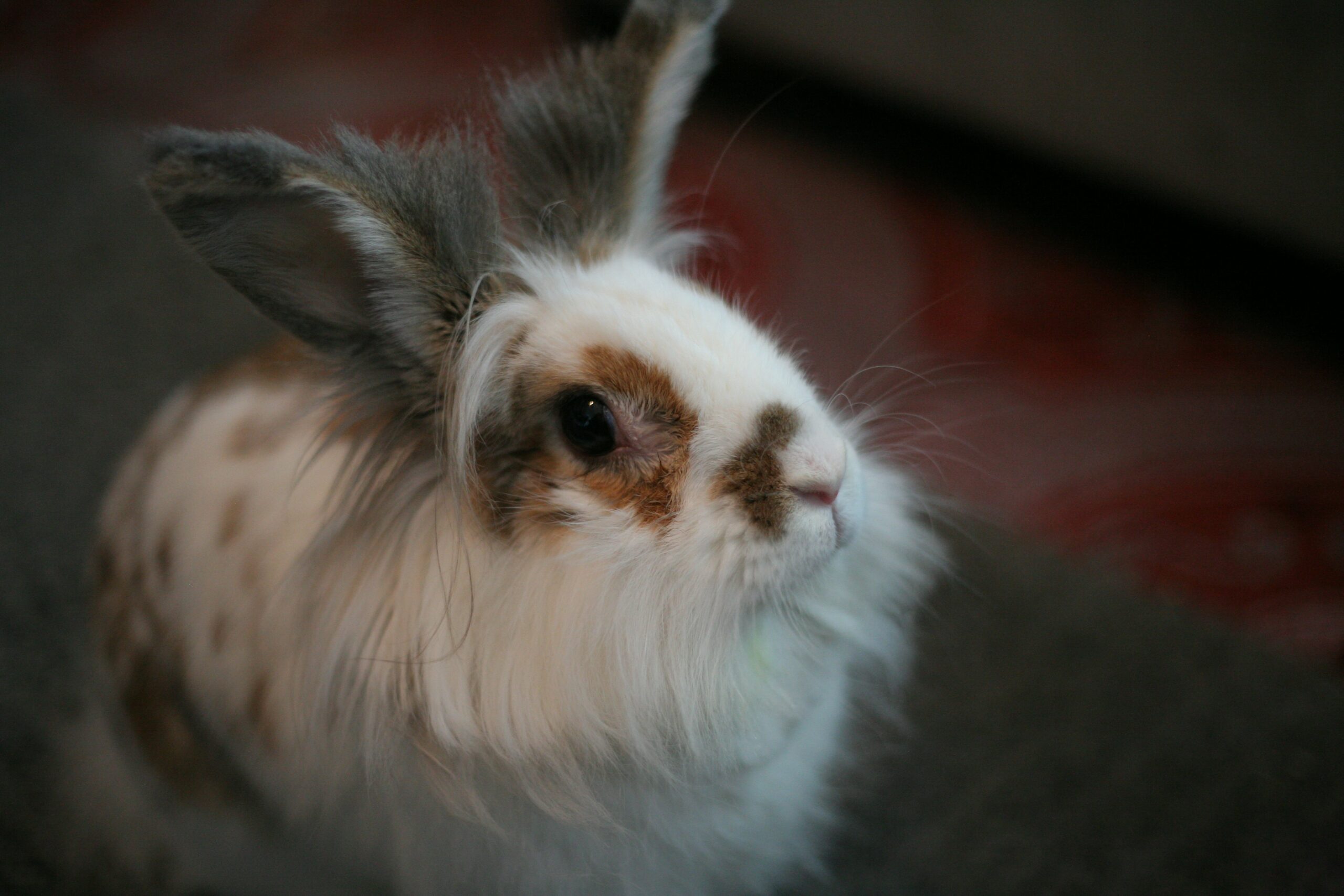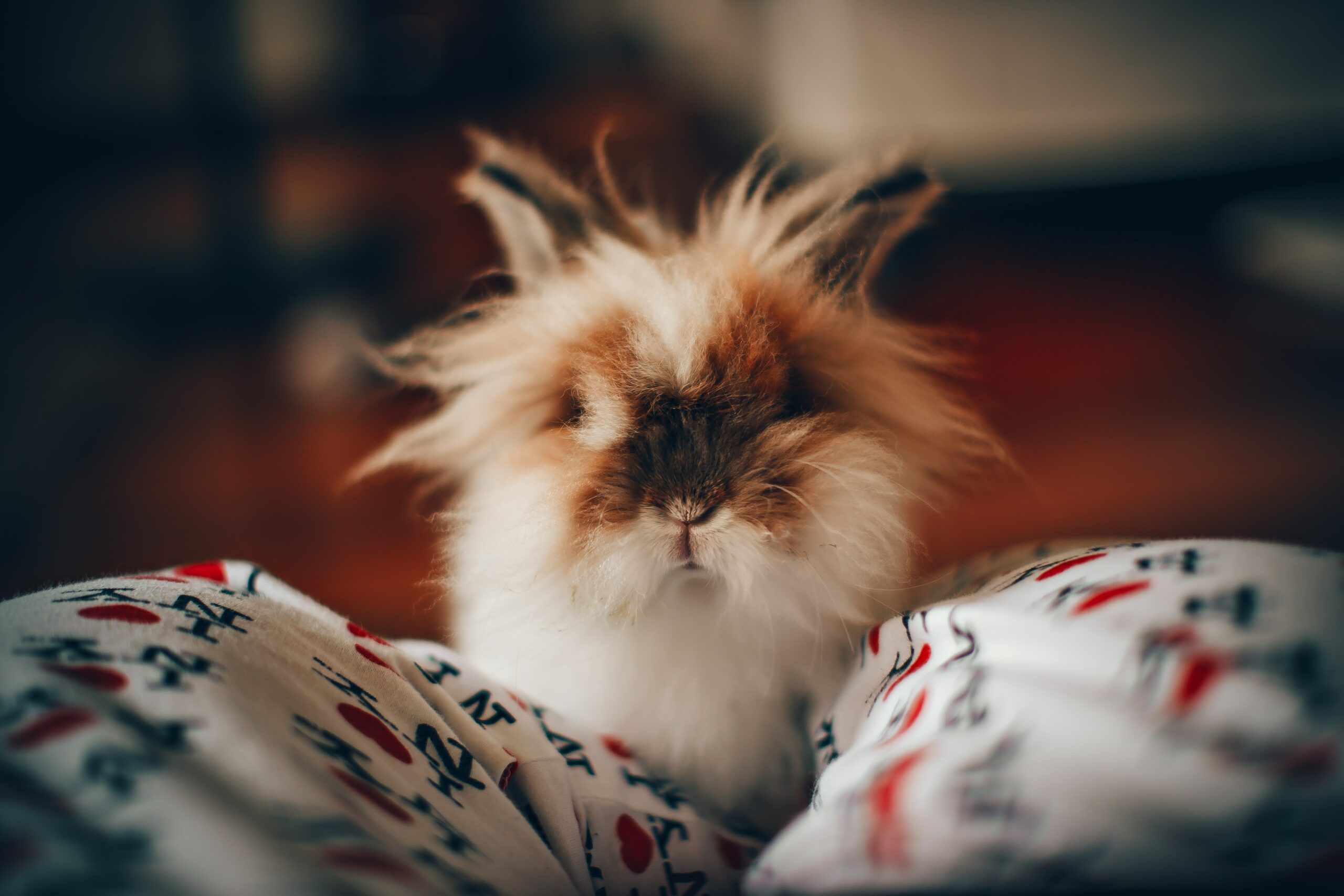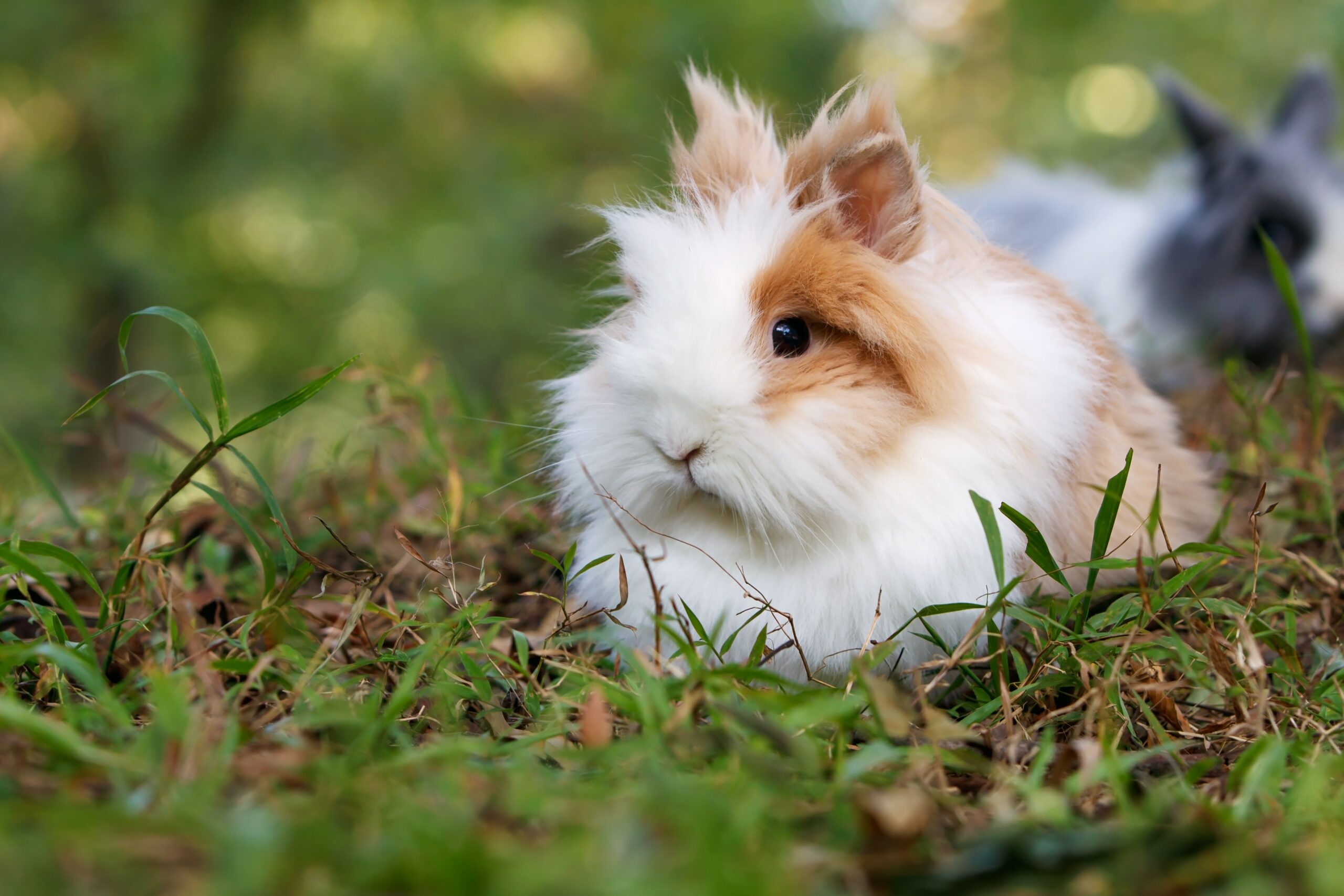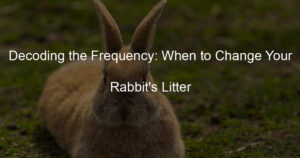Lionhead rabbits are enchanting creatures known for their unique appearance and charming personalities. As prospective or current owners, it’s essential to understand various aspects of their lives, including their reproductive capabilities.
In this comprehensive article, we will delve into the captivating world of lionhead rabbit reproduction and answer the burning question: how many babies can they have? Let’s embark on this informative journey to uncover the mysteries of lionhead rabbit offspring.
How many offspring can a lionhead rabbit produce in a single litter?
Lionhead rabbits typically have litters that consist of one to eight babies. However, the average litter size typically ranges from three to six bunnies.
Factors such as the rabbit’s age, genetics, and overall health can influence the size of the litter. Younger rabbits tend to have smaller litter initially, but as they mature, the number of babies they produce may increase.
What factors influence the size of a lionhead rabbit’s litter?

The size of a lionhead rabbit’s litter can be influenced by various factors. Genetics play a significant role, as some rabbits may have a genetic predisposition to larger or smaller litters. The age of the rabbit is also a crucial factor.
Younger rabbits tend to have smaller litters, while older rabbits may have larger ones. The overall health and well-being of the mother rabbit also contribute to the size of the litter. A well-nourished and stress-free environment can positively impact the number of babies a lionhead rabbit has.
Is there a limit to the number of babies a lionhead rabbit can have?
While there is no strict limit to the number of babies a lionhead rabbit can have, it is uncommon for them to produce more than eight in a single litter. Breeding rabbits responsibly and considering their well-being is essential to ensure the health and survival of both the mother and the babies.
It’s crucial to consult with a veterinarian or an experienced breeder to ensure a safe and healthy breeding process.
How does the age of a lionhead rabbit affect its reproductive capabilities?
The age of a lionhead rabbit plays a significant role in its reproductive capabilities. Young rabbits, especially those under one year old, may have smaller litters due to their developing reproductive systems.
As they reach maturity, typically between six months and one year of age, their ability to produce larger litters increases. However, it’s important to note that older rabbits may experience a decline in fertility and litter size as they reach advanced ages.
Can a lionhead rabbit give birth to multiple litters in a year?
Lionhead rabbits are capable of breeding and giving birth to multiple litters in a year. However, it is generally recommended to allow the mother rabbit time to recover between litters to ensure her well-being and prevent potential health complications.
Breeding rabbits too frequently can lead to stress and physical strain on the mother, potentially compromising her ability to care for the babies.
Are there any differences in the breeding patterns of male and female lionhead rabbits?
Male and female lionhead rabbits exhibit distinct breeding patterns. Male rabbits, known as bucks, reach sexual maturity earlier than females, referred to as does.
Bucks can start breeding as early as three to four months of age, while does usually become sexually mature between four and six months. However, it’s important to consider the overall health and development of the rabbits before initiating the breeding process.
How long does it take for a lionhead rabbit’s babies to be born?
The gestation period of a lionhead rabbit typically lasts around 28 to 34 days. After mating, the doe’s pregnancy progresses relatively quickly. It is essential to provide a comfortable and secure nesting area for the expectant mother a few days before she is due to give birth.
Observing the signs of impending labor, such as restlessness and nest-building behaviors, can help prepare for the arrival of the baby rabbits.
What are the typical survival rates for lionhead rabbit babies?
The survival rates of lionhead rabbit babies can vary depending on several factors. When provided with proper maternal care and a healthy environment, the survival rate of a single baby rabbit can be around 80%.
As the litter size increases, the survival rate may decrease slightly. Factors such as maternal care, the availability of nutritious food, and suitable housing conditions greatly influence the survival rates of lionhead rabbit babies.
| Baby Rabbit | Survival Rate | Factors Influencing Survival |
|---|---|---|
| 1 | 80% | Strong maternal care, a healthy environment |
| 2 | 70% | Moderate maternal care, average environment |
| 3 | 60% | Less maternal care, suboptimal environment |
| 4 | 50% | Minimal maternal care, poor environment |
| 5 | 40% | Negligible maternal care, detrimental environment |
How involved is the lionhead rabbit mother in raising her babies?
Lionhead rabbit mothers are known for their attentive and nurturing nature when it comes to raising their babies. They provide warmth and nourishment to the newborns through nursing and grooming.
The mother rabbit will also construct a nest for her babies, using her fur to create a cozy and protective environment. As the babies grow, the mother gradually introduces them to solid food, guiding them through the early stages of independence.
Are lionhead rabbits more likely to have a smaller litter as they get older?

As lionhead rabbits age, there is a possibility that their litter sizes may decrease. This is primarily due to the impact of aging on their fertility and reproductive capabilities. Just like humans and many other animals, the reproductive system of a lionhead rabbit undergoes changes as it gets older.
As a result, the frequency and success of breeding can be affected, leading to smaller litters or even infertility in some cases. While there may be individual variations, it’s important to be aware of these possibilities and monitor the health of older rabbits closely.
Do lionhead rabbits exhibit any unique behaviors during the birthing process?
During the birthing process, lionhead rabbits may exhibit unique behaviors that indicate the onset of labor and the impending arrival of their babies. Here are some notable behaviors to look out for:
- Restlessness: The mother rabbit may appear restless, constantly shifting positions and rearranging nesting materials.
- Nest-building: She may engage in intense nest-building activities, using straw, hay, and her own fur to create a comfortable and secure nesting area for her babies.
- Grooming: The expectant mother may spend more time grooming herself, ensuring she is clean and ready for the birthing process.
- Nest guarding: As the due date approaches, the mother rabbit may become protective of her nest, displaying signs of territorial behavior.
- Digging: Some lionhead rabbits may exhibit digging behavior as if trying to make the nest area even more cozy and secluded.
- Vocalizations: During labor, the mother rabbit may emit low grunts or soft vocalizations, signaling her discomfort or the progress of the birthing process.
- Increased sensitivity to touch: The rabbit may become more sensitive to touch, reacting strongly if her belly is touched or handled.
Can a lionhead rabbit successfully nurse and care for a large litter of babies?
Lionhead rabbits are generally capable of successfully nursing and caring for their babies, even with a larger litter size. However, it’s crucial to ensure that the mother rabbit receives proper nutrition, including a balanced diet and access to fresh water.
Providing a spacious and secure nesting area with ample bedding is also important to support the mother’s ability to care for her babies effectively.
What are the risks associated with a lionhead rabbit having too many babies?
Having too many babies can pose certain risks for lionhead rabbits and their overall well-being. One of the main concerns is the mother rabbit’s ability to provide adequate nourishment to each offspring.
With a larger litter, there is a higher demand for milk production, and the mother may struggle to meet the nutritional needs of all the babies. This can lead to malnutrition, weaker immune systems, and an increased susceptibility to illnesses and infections.
Additionally, crowding within the nest can create a stressful environment and increase the likelihood of accidental injuries among the babies. It’s crucial for owners to closely monitor the health of both the mother and the babies in cases of larger litters, ensuring that each bunny receives proper care, nutrition, and safe living space.
Are there any methods to help increase or decrease the number of babies a lionhead rabbit has?
While the number of babies a lionhead rabbit produces is primarily influenced by genetic factors, there are certain methods that can be employed to some extent. Breeders can selectively choose breeding pairs with a history of larger litter sizes to increase the chances of having more babies.
Conversely, spacing out breeding intervals and allowing adequate recovery time between litters can help regulate and potentially reduce the number of babies born to a doe. It is important to approach breeding with caution and prioritize the health and well-being of the rabbits involved.
Consulting with experienced breeders or veterinarians is highly recommended to ensure responsible breeding practices that consider the welfare of both the mother and the offspring.
How can lionhead rabbit owners prepare for the arrival of a new litter?

Preparing for the arrival of a new litter is crucial to ensure the health and well-being of both the mother rabbit and the babies. Owners should provide a spacious and secure nesting area with a soft bedding material for the mother to build a comfortable nest.
It’s essential to have a good supply of nutritious food suitable for both the mother and the babies, as well as easy access to clean water. Monitoring the mother’s behavior and seeking veterinary advice when needed can also contribute to a successful birthing experience.
To Sum Up
The reproduction of lionhead rabbits is a fascinating aspect of their lives. Understanding how many babies they can have and the various factors that influence their reproductive capabilities is essential for responsible ownership.
By considering the age, genetics, and overall health of the rabbits, as well as providing proper care and a suitable environment, owners can ensure the well-being of both the mother and her precious offspring. Embrace the wonder of lionhead rabbit reproduction and create a nurturing environment for these adorable creatures to flourish.




